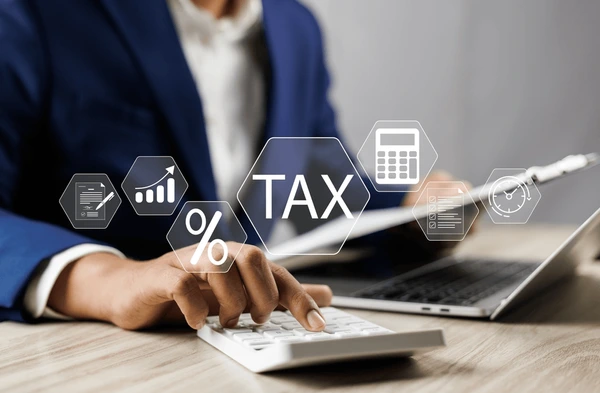Introduction
The tax and accounting industry is experiencing a technological transformation that is reshaping how services are delivered and consumed. With the rise of automation, artificial intelligence, cloud computing, and blockchain, traditional methods of bookkeeping and tax filing are being replaced with digital-first solutions. This evolution is not only increasing efficiency but also expanding the value proposition of tax and accounting services. In this article, we’ll explore how technology is redefining this critical sector and what the future holds for businesses and professionals alike.
The Shift to Digital Platforms
Over the last decade, cloud-based platforms have become the backbone of modern accounting systems. These tools allow businesses to access financial data in real-time, streamline tax reporting, and manage transactions from anywhere. With integrated dashboards and automated features, platforms like QuickBooks, Xero, and FreshBooks have made tax and accounting services more accessible and user-friendly.
The digital shift also means firms can offer services on a global scale. Small and medium-sized enterprises (SMEs) now have the ability to work with tax professionals from different regions, enabling better financial management without geographical constraints.
Automation and Artificial Intelligence
Automation is eliminating much of the manual work traditionally associated with accounting. Tasks such as data entry, invoice processing, bank reconciliations, and even some tax preparation duties can now be handled by intelligent software. This allows tax and accounting services to focus more on strategic planning and advisory roles rather than compliance-related chores.
Artificial Intelligence (AI) takes this one step further by offering predictive analytics and insights. AI tools can analyze large datasets to identify trends, flag anomalies, and provide real-time suggestions to improve financial health. For example, AI can predict cash flow patterns or suggest tax-saving opportunities based on historical data.
The Rise of Advisory Services
As automation reduces the need for routine accounting tasks, professionals in the tax and accounting services industry are shifting toward an advisory model. Clients now seek guidance on tax strategies, regulatory compliance, financial planning, and business growth. This new direction turns accountants into financial consultants, providing high-value advice supported by robust analytics and digital tools.
Firms that adapt to this shift by expanding their service offerings to include advisory and consulting will not only survive but thrive in the digital age.
Blockchain and Secure Transactions
Blockchain technology has the potential to revolutionize financial auditing and transparency. With blockchain, each transaction is recorded on a decentralized ledger, creating a permanent, tamper-proof record. This significantly reduces the risk of fraud and error in financial reporting.
For tax and accounting services, blockchain offers streamlined auditing processes and real-time verification of transactions. This reduces the time and resources spent on reconciliations and increases trust in financial data.
Enhanced Client Collaboration
In the digital age, communication between clients and accountants is no longer limited to emails or in-person meetings. Cloud platforms, client portals, and secure file-sharing tools allow for constant collaboration. Accountants can work in tandem with clients to solve financial issues or make decisions on the fly.
Video conferencing and AI chatbots are also improving client support. These tools offer real-time responses to tax-related questions and improve the overall client experience, making tax and accounting services more dynamic and responsive.
Compliance and Regulatory Adaptation
Tax laws and regulations continue to evolve rapidly. Keeping up with these changes is critical for businesses and their accountants. Digital tools now automatically update tax codes and compliance guidelines, reducing the risk of human error and non-compliance.
Machine learning algorithms can analyze legislative documents to identify relevant changes and even suggest necessary actions. This proactive approach ensures that businesses remain compliant without dedicating extensive resources to manual research.
Remote Work and Virtual Firms
The COVID-19 pandemic accelerated the acceptance of remote work, and the tax and accounting services industry was no exception. Virtual firms are now a growing trend, enabling accountants to serve clients without a physical office space.
This shift has created new business models and lowered overhead costs. Accountants can now serve more clients, offer flexible service packages, and even work across time zones. As a result, clients benefit from cost savings and improved accessibility to professional services.
Data Security and Privacy
As digital adoption grows, so do concerns about data security. Tax and accounting services handle highly sensitive information, making cybersecurity a top priority. Encryption, multi-factor authentication, and secure cloud storage are now standard practices for safeguarding client data.
Firms are also investing in cybersecurity training and employing specialized IT teams to monitor threats. As regulatory standards become stricter, staying ahead of data protection protocols will be essential for maintaining client trust and legal compliance.
The Future Workforce
Technology is changing the skills required in tax and accounting services. Professionals must now be proficient in digital tools, data analytics, and cybersecurity. This shift is also influencing accounting education, with universities and training programs updating their curricula to include digital literacy and tech-based competencies.
Soft skills like communication, critical thinking, and problem-solving are equally important. As technology handles routine tasks, accountants must excel in interpreting data, advising clients, and making strategic decisions.
Conclusion
The digital age is ushering in a new era for tax and accounting services. Technology is not only changing how services are delivered but also redefining the role of accountants. From automation and AI to blockchain and virtual firms, the future of this industry is fast-paced, client-focused, and deeply integrated with digital innovation.
